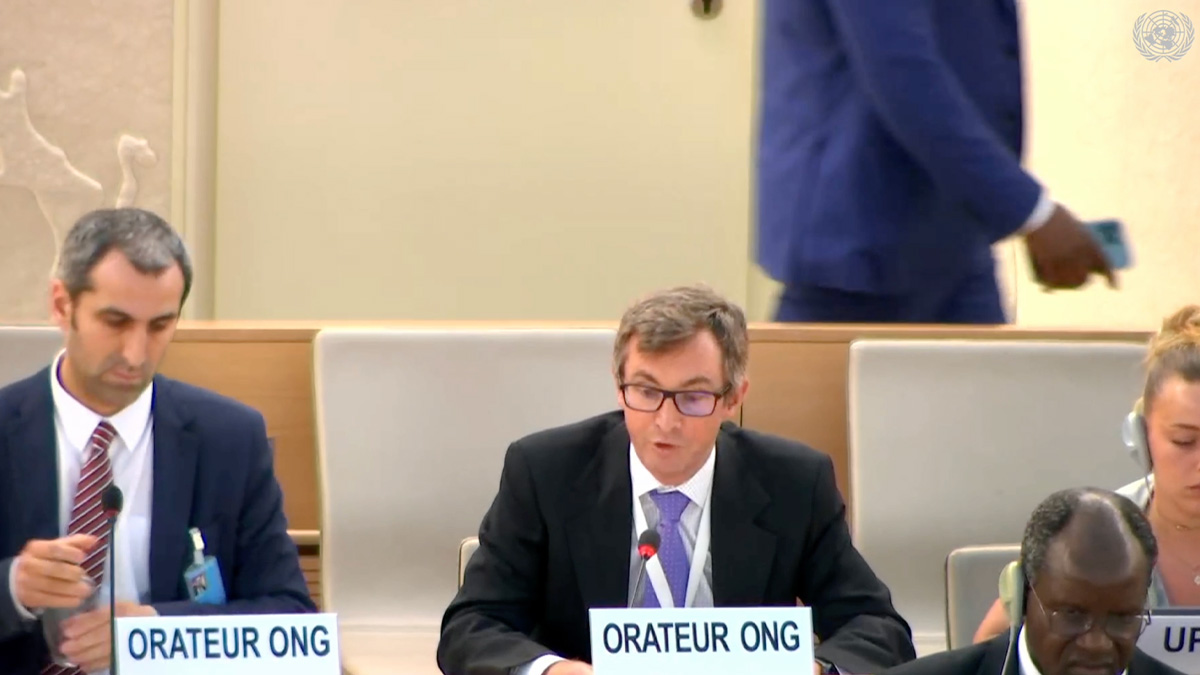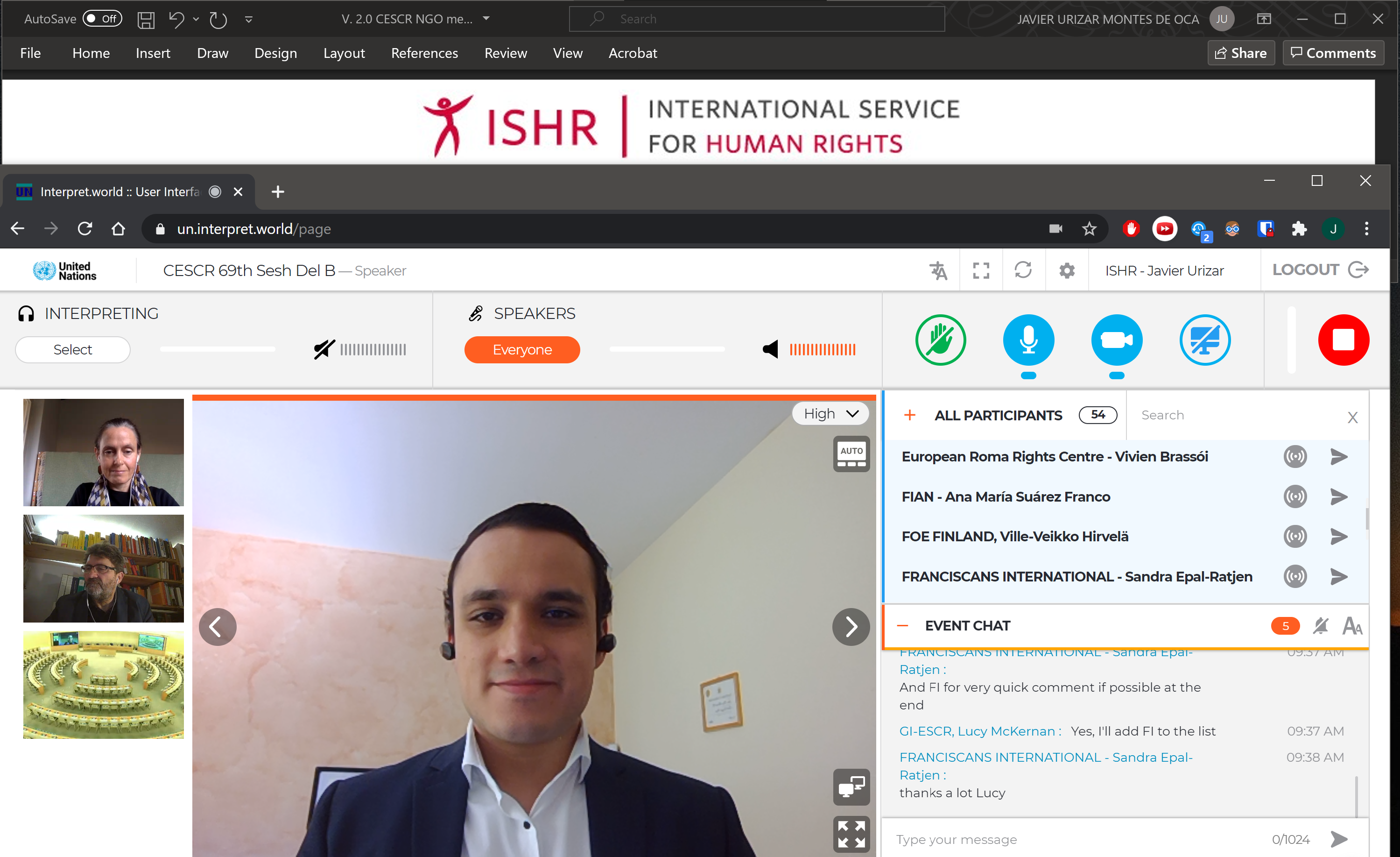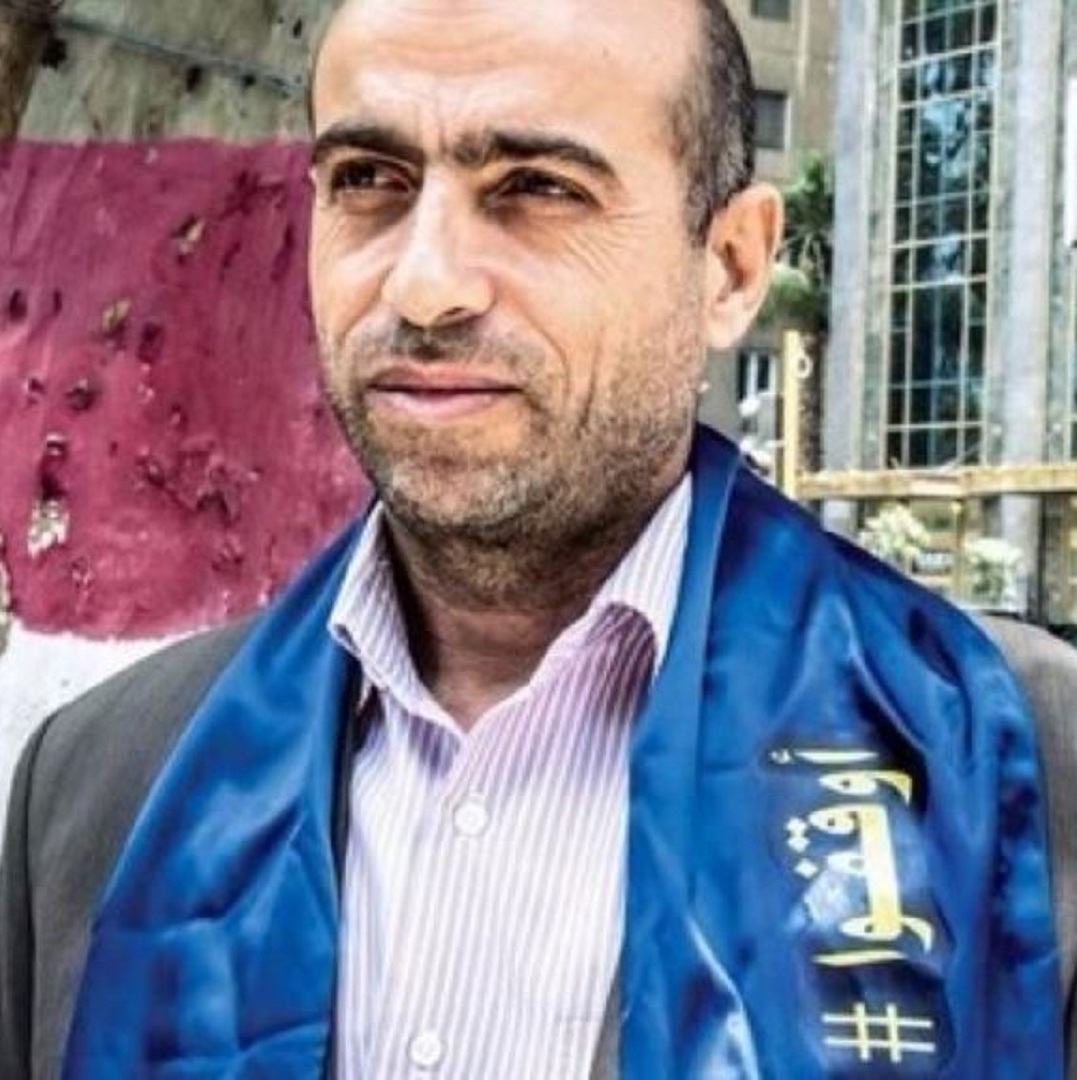Welcoming the steps taken by the Committee to recognise and protect defenders of economic, social and cultural rights, ISHR’s Javier Urizar highlighted the additional challenges brought to them during the pandemic.
Discussing the Committee’s methods of work
ISHR commended the Committee for its important efforts in continuing its work despite the pandemic, recognising the value of online meetings and communications, especially for those NGOs and individuals who may not be able to travel to Geneva for in-person meetings. ISHR asked whether the Committee would maintain its openness towards online communications once in-person meetings were a possibility again and received a positive answer.
ISHR also welcomed the Committee’s recent statements and guidance on the emergency measures taken to combat COVID-19 and their consequences on ESC rights; particularly welcoming the Committee’s focus on the impact caused to vulnerable populations.
Situtation of ESC rights defenders
Regarding the situation of ESC rights defenders, ISHR highlighted the risks that they are facing during these times.
Aside from affecting the right to health, the pandemic has indirectly damaged other ESC rights. Emergency powers have been used around the world (for example, in Malaysia and Venezuela) to silence human rights defenders, including defenders of ESC rights. Furthermore, lockdowns and quarantines have created a massive backlog in judicial processes and dispersed the resources necessary to enforce judicial decisions, resulting in ineffective judicial remedies. This, in turn, has contributed to a situation where attacks and reprisals against human rights defenders continue to be met with impunity. Such situations are occurring, for example, in Guatemala, Kenya, and the Philippines, where defenders of the rights to land, culture, and health have been victims of crimes for which no one is being held accountable.
Based on the Committee’s excellent statement of October 2016, ISHR urged the Committee to pay particular attention to the right to defend ESC rights and specifically, to consider the situation of land rights defenders in the context of the ongoing discussion about a new General Comment on rights related to land.
Photo credit: ISHR




